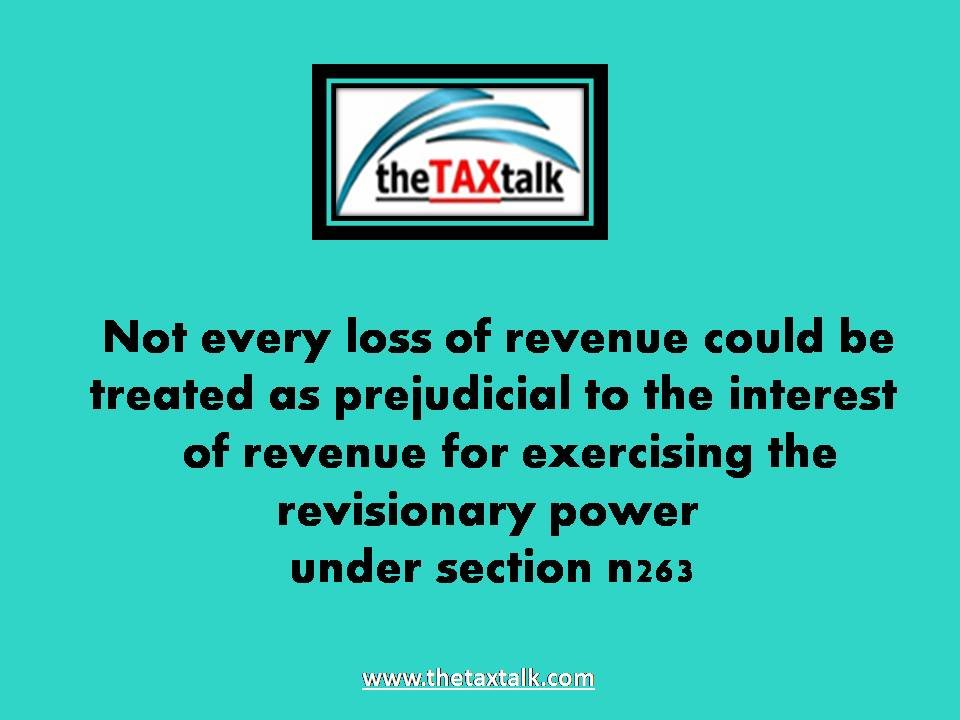![]()
Not every loss of revenue could be treated as prejudicial to the interest of revenue for exercising the revisionary power under section n263
The Jaipur Bench of the ITAT in the case of APM Industries Ltd. v. DCIT [ ITA. No. 203/JP/2023] has quashed the revision order under Section 263 of the Income Tax Act 1961. The ITAT’s gave rationale behind this decision was that not every loss of revenue as a consequence of the order of the AO could not be treated as prejudicial to the interest of revenue. They drew upon a precedent set by the Hon’ble Supreme Court in the case of CIT vs. Max India Ltd. (2007) 213 CTR (SC) 266: (2007) 295 ITR 282 (SC). In this landmark
case, it was held that:
“The phrase ‘prejudicial to the interests of the Revenue’ in s. 263 of the IT Act, 1961, has to be read in conjunction with the expression ‘erroneous’ order passed by the AO. Every loss of revenue as a consequence of an order of the AO cannot be treated as prejudicial to the interests of the Revenue. For example, when the AO adopts one of two courses permissible in law and it has resulted in loss of revenue, or where two views are possible and the AO has taken one view with which the CIT does not agree, it cannot be treated as an erroneous order prejudicial to the Revenue, unless the view taken by the AO is unsustainable in law.”
Hence, this provision cannot be invoked to correct each and every type of mistake or error committed by the AO; it is only when an order is erroneous as also prejudicial to Revenue’s interest, then the provision will be attracted.
The case detail is as under:
APM Industries Ltd.
Vs.
DCIT,
[203/JP/2023]

